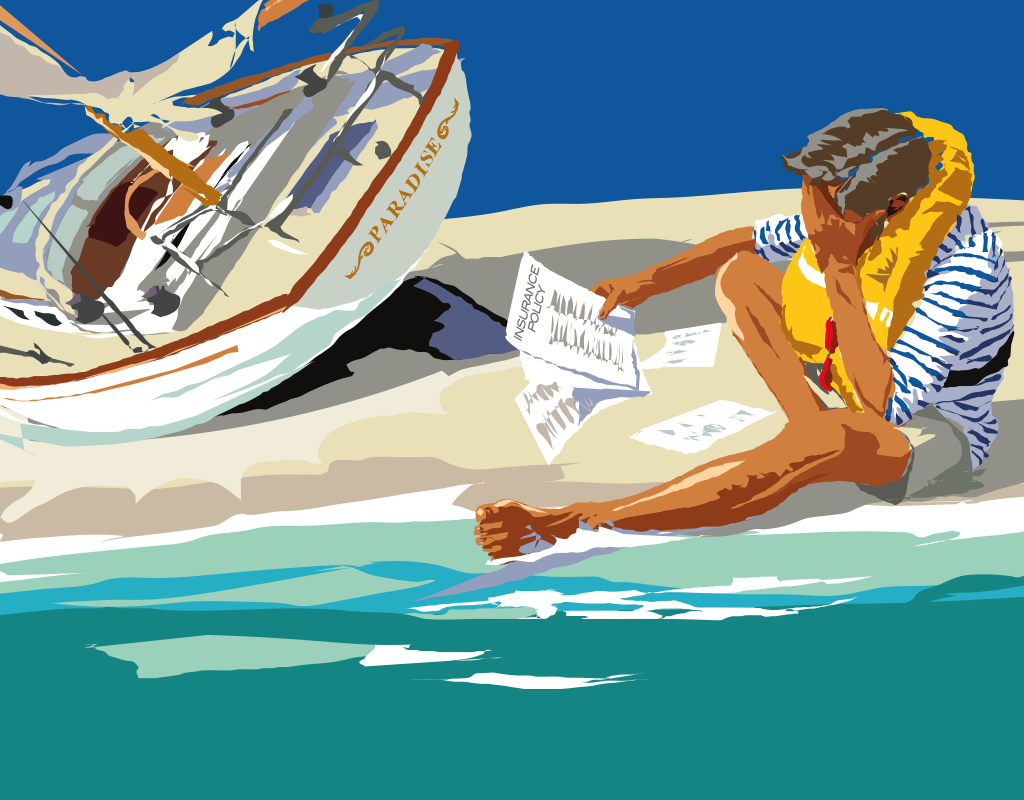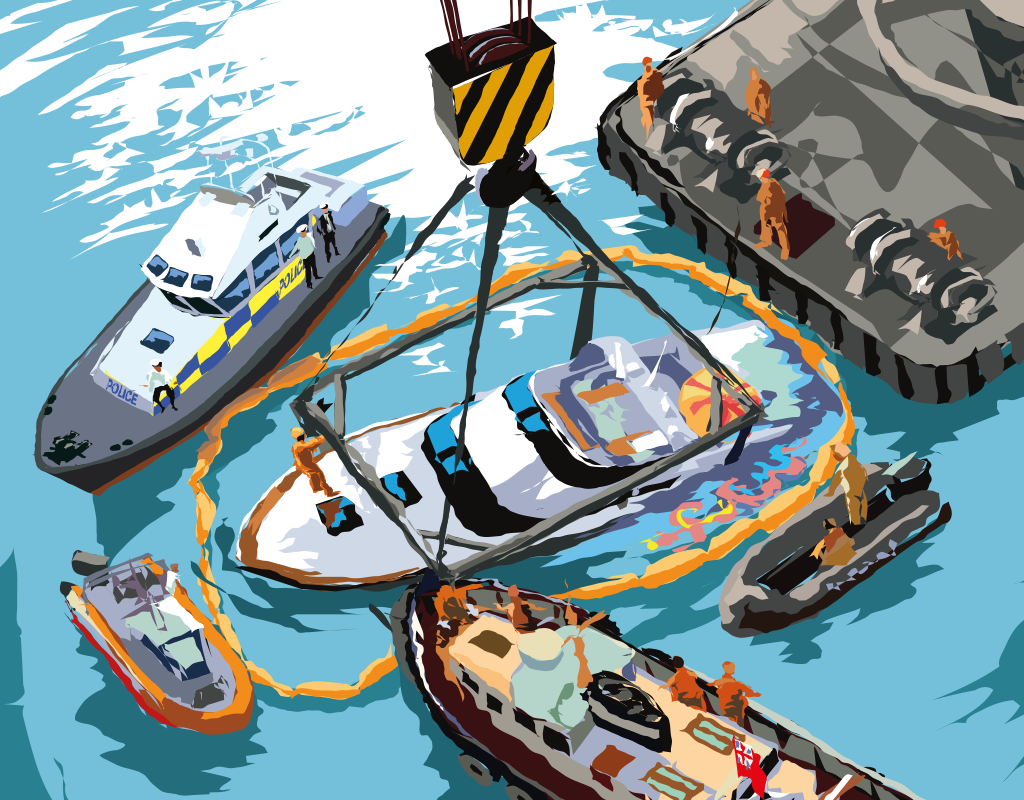Boat Insurance Explained
Do I need boat insurance?
For most boat owners, the start of the season is currently moving into an undefined distance. But even if the boat may stay ashore longer than planned this year, it is still worth taking a look at the insurance documents. No matter what, boats and yachts are exposed to risks even if they do not fulfill their purpose. Third party liability claims should also always be taken into account when planning for the coming months.
But how do you recognize a good policy, what can you insure yourself against and what has to be considered when concluding an insurance contract? Pantaenius has been the leading European provider of boat and yacht insurance for 50 years. More than 100,000 owners already trust our brand.
In the next days you will find out here what every skipper should pay attention to when choosing the right insurance for his vessel.
Never sail without it
Never sail without it: Liability Insurance 1 of 2
Today, the market offers a multitude of different products. A reputable provider like Pantaenius helps to determine individual needs. The so-called boat liability insurance should nevertheless be part of the absolute standard equipment on board. Even if boat liability is not mandatory in some countries, boat owners are liable with their entire assets for damages they culpably cause to a third party through the use of their vessel.
Such liability claims can arise from various scenarios but they are not covered by private liability insurance. A separate boat liability insurance is therefore urgently necessary and recommended to every owner, regardless of the value of the boat.
Never sail without it: Liability Insurance 2 of 2
When choosing the right liability insurance, the insurance conditions can vary greatly. Hardly anyone wants to read the small printed insurance conditions but you should definitely check some details: for example, whether the policy fully covers claims of the crew and guests, including claims amongst each other.
Furthermore, the shared use of water sports equipment and damage to rented property should be insured, as should skipper liability insurance. Since different countries have different requirements for the minimum amounts of cover of a boat liability insurance, this should also be taken into account when making a decision. In Italy, for example, higher minimum amounts of cover apply than in Germany.
More than just an asset: hull insurance
In addition to liability insurance, it is well worth taking out hull insurance in almost all cases. This covers damage to the boat itself and also, depending on the quality of the insurance conditions, salvage or inspection costs and personal effects.
It may also be necessary to insure a dinghy, permanently associated trailers or bearing blocks. Not every provider offers this option at no extra cost. The winter storage risk, transports or shipyard and storage stays as well as the occasional crossing of the current cruising area should also be insured as standard in a good Policy.
Pantaenius insures boats and yachts on the basis of all risks cover and also offers a fixed insurance value, which is reimbursed in the event of a total loss. This fixed value cannot be contested, as it is formulated as new value insurance.
When taking out a hull insurance it is important to understand the different regulations in the insurance conditions for a partial loss and a total loss of the ship. Partial claims should be settled in such a way that damages are handled without any deduction of time-value up to the amount of the agreed sum insured.
Many providers on the market advertise with conditions that promise to be based on a true agreed fixed value, but owners should beware of supposedly particularly cheap boat insurances.
As so often the case, the devil is in the details and some providers limit the duration of the agreed fixed value or work with sums insured that are not clearly based on the reinstatement value.
In the light of volatile boat markets, a deduction of the market value in the event of a total loss may mean a considerable financial loss, especially for fairly new vessels. In this case, the insurance should therefore disregard the frequently quoted market value in the event of a total loss and enable the owner to buy an equivalent new boat.
Check the smallprint
Observe exclusions and small print! When it comes to exclusions, yacht owners should take a close look. An example: Abrasion or normal wear and tear are generally excluded from hull insurance cover. But what about consequential damages? If the mast breaks because of an old saling, then the breakage of the mast is a consequential loss. This is not covered by many insurance policies.
In addition, a deductible is usually charged in the event of a claim. When reviewing the conditions, you should therefore pay attention to whether and when the insurer makes exceptions and waives the deductible.

Be aware of your obligations
Anyone who signs an insurance contract undertakes to observe certain rules of conduct in the event of a claim. The two most important: immediate notification obligation and loss mitigation measures.
Many policyholders fail to report a loss immediately to their insurance company. Practical example: A customer reports a grounding. The expert also finds damage due to an earlier grounding which the owner considered too minor to report. Now it has to be calculated which damage is old and which is new. It is not always clear whether a damage is bad or how consequential damage can be avoided. Therefore, you should always contact the insurance company immediately. Simply doing nothing is the worst possible decision.
Dont build a castle on sand
What an insurer can really do is unfortunately only revealed when it may already be too late. Not every insurance company is really available 24/7 in case of a claim or knows the local conditions.
Without an appropriate infrastructure in the area of claims handling, the smallest repair becomes a test of patience for the customer. If, for example, the claims department has been outsourced to a third party, potential policyholders should be alert. The last thing skippers want to experience in the event of a claim is a phone call to an overburdened call centre.
Pantaenius, for example, maintains a network of more than 35,000 contacts to protect its clients, who can help in emergencies even in the most remote water sports areas. The in-house claims department works 365 days a year and is available 24 hours a day.

Communication is key
Even after conclusion of the contract, the client is obliged to notify changes that have an influence on the risk assessment. Otherwise this may have a negative effect on the insurance coverage. Conversely, the insurance provider must advise the client holistically on the basis of this information.
This obligation to provide advice is even prescribed by law in order to protect the consumer. In case of doubt, the insurance provider must prove that he has drawn the customer's attention to a risk, but that he expressly did not wish to insure the risk.
